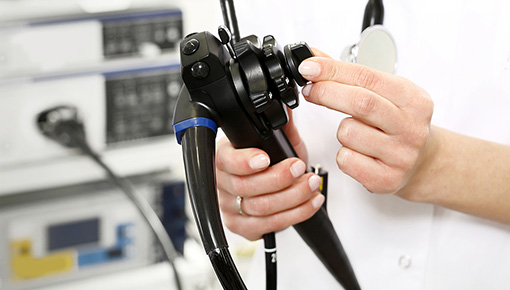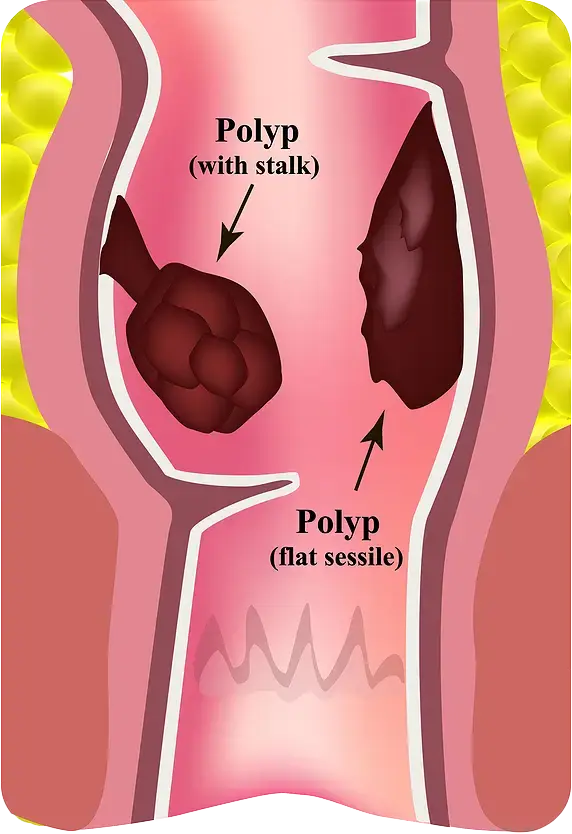Services
Colon Polyps
Colon polyps, including those with potential for cancerous transformation, are quite common, yet often unnoticed. Early detection and timely Colon Polyps Treatment are crucial as they can help prevent the progression to cancer. By gaining a better understanding of these polyps, individuals can alleviate anxiety and take proactive steps towards their health after a recent diagnosis.

COLON POLYPS TREATMENT
What Are Colon Polyps?
Simply put, they are growths on the inner walls of the colon or large intestine. They can vary in size from very small to quite large and are classified into three types. The least concerning type is the hyperplastic polyp. Most colon polyps are adenomatous, which may become cancerous over time and should be removed promptly. Lastly, malignant polyps contain cancerous cells.

Common Symptoms
Most colon polyps are asymptomatic and are discovered through routine colon cancer screenings. However, some patients with large or malignant polyps might experience mild to moderate symptoms. Common symptoms include:
- Rectal bleeding
- Blood in the stool
- Intestinal pain
- chronic diarrhea or constipation
- Nausea and vomiting
Causes and Risk Factors
Colon polyps develop when cells in the colon continue to divide and grow excessively, often associated with aging, particularly in individuals aged 50 or older. Those with a family history of polyps or colon cancer or a personal history of inflammatory bowel disease are at higher risk.
Environmental and lifestyle factors, such as smoking, obesity, a sedentary lifestyle, and poorly controlled type 2 diabetes, can also increase the risk of polyp formation and progression.
Rarely, genetic mutations may cause hereditary colon polyps, as seen in cases of FAP (familial adenomatous polyposis), HNPCC (Lynch syndrome), Gardner’s syndrome, and Peutz-Jeghers syndrome.
Diagnosing Colon Polyps
Colon polyps are often diagnosed when a patient reports specific symptoms that cannot be attributed to other medical conditions, or during routine screening or diagnostic colonoscopy.
Colonoscopy is the most common diagnostic test and is considered the gold standard for colon cancer screening. This procedure can detect and non-surgically remove polyps in most cases, preventing their progression to precancerous or cancerous lesions.
Flexible sigmoidoscopy can also diagnose polyps by examining the final section of the colon. Additionally, stool-based tests are becoming more popular due to their convenience. However, if blood is detected in the stool or stool DNA tests positive for polyps, a colonoscopy will be required for a complete evaluation.
Colon Polyps Treatment
As previously mentioned, colonoscopies serve both diagnostic and treatment purposes for polyps. Polyps can be removed during the screening using forceps or a wire loop through a polypectomy. If a polyp is too large for this method, minimally invasive surgery using a laparoscope may be necessary.
